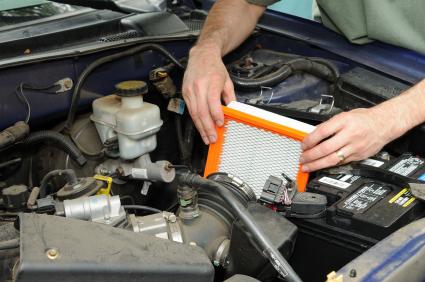
Air filters are normal wear items that require regular checks and replacement.
Their role is to trap dirt particles that can cause damage to engine cylinders, walls, pistons and piston rings. In fuel-injected vehicles, the air filter also plays a role in keeping contaminants off the airflow sensor.
The engine management system can compensate for a dirty air filter up to a point, but when the restriction becomes too great, engine performance and fuel economy begin to suffer.
Regular inspections are key to ensuring optimal engine performance, airflow and horsepower. So, inspect the air filter at each oil change or when other maintenance is performed. Holding a bright shop light behind the filter element is the best inspection method.
Replace air filters every 15,000 miles or once a year, or if it’s leaking, torn, water- or oil- soaked, restricted or showing other signs of wear. If your customer lives in an especially dusty or dirty area, the air filter will need to be changed more often.
The factory recommended service intervals for air filters tend to be overly optimistic, with many in the 30,000- to 50,000-mile range. The life of any air filter depends on driving conditions, how much dirt the filter is exposed to and the design of the filter itself.
Some air filters have greater “depth” and holding capacity to extend filter life. There is a balance between it being highly efficient, but not clogging up too quickly or becoming too restrictive.
A filter’s efficiency depends on the media used. Most pleated paper air filters are made of cellulose and/or synthetic fibers. The size and distribution of the fibers determine the filter’s ability to trap dirt, the amount of dirt the filter can hold and the amount of incoming air that will be restricted. Better-quality filters may be treated to make them water-resistant. Rain and road splash can sometimes enter the air filter housing where it can make untreated paper filter media swell and deteriorate.
Seeing Is Believing
Air filter replacement shouldn’t be a tough sell. Once you show a customer their dirty filter, the need for replacement becomes obvious. Further, taking the time to educate your customer on the benefits of replacement will help make the choice for replacement a no-brainer. Use a high-quality filter and justify the cost by extolling the many dividends. A new air filter can extend engine life, increase fuel economy and boost engine performance and horsepower. You can’t put a price on that.
Courtesy of Auto Care Pro News
